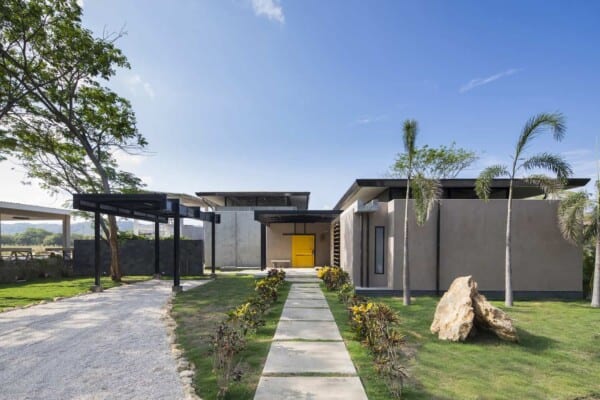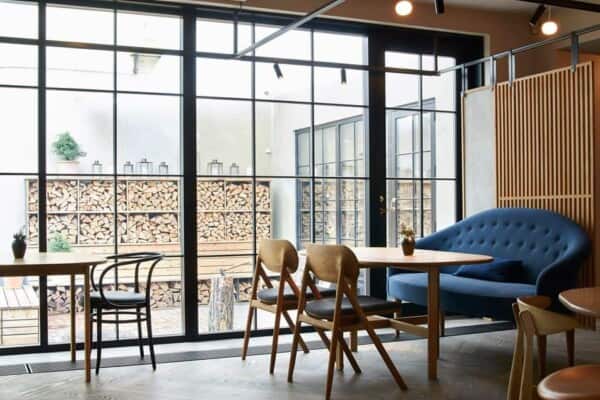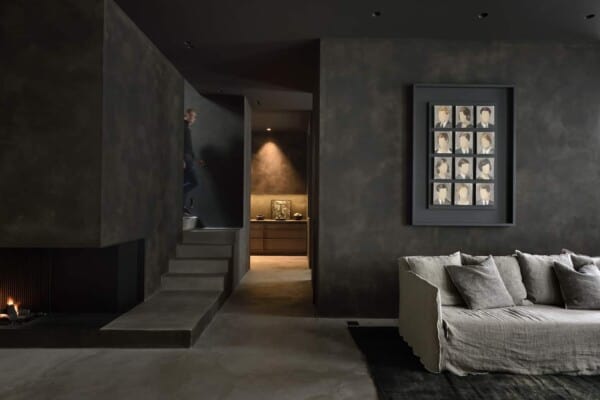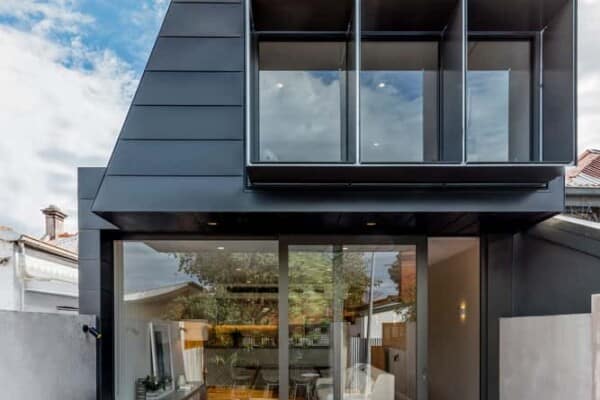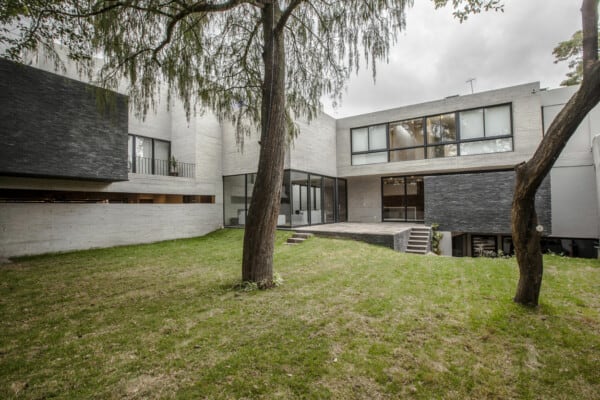Elm Court was designed by AR Design Studio, and is located in Winchester, England.
The interior is designed in pale neutrals and large windows with abundant natural light, giving it a relaxed elegance.
Elm Court by AR Design Studio:
“Hidden from view, behind the ordinary looking façade of a modestly sized semi-detached house in North London, sits an elegant piece of modern contemporary architecture. The recently retired owners sought to adapt the existing small and cramped property into their perfect home. Despite their North London site, they were eager to work again with the south coast based architects, having experienced an enjoyable and smooth design process on an earlier holiday home. AR Design relished the opportunity to reunite with an old client. The brief was to design a single storey extension at the rear of the existing 3 bedroom property, linking in with the original, whilst making minimal physical changes. The open-plan extension was to comprise of a new kitchen, new dining/living space, utility room, cinema room, WC and office area; with the aim to bring views of the garden and more light into the property.
The team at AR are particularly interested in relationships between inside and outside space, between the man-made and nature. They could see the potential to completely revive the feel and functionality of this home within the tight site as a parameter for an interesting design approach. It completely transforms the feel and atmosphere of the existing property.
The concept is firmly rooted in uniting the house with the garden and positively affecting the interior feel of the original property, whilst making minimal physical changes. The solution was to have a grey wall running through the entire home; from the front door through the original house into the new extension and out onto the garden to unite the original front with the new extension. This physical wall acts as an axis of movement, guiding you through the house, from old to new. It also draws the eye through the space and out to the garden providing a physical inside/outside link. The wall breaks down as it dissects the contemporary extension, defining smaller, more intimate spaces, whilst still retaining the feeling of togetherness evident in open-plan living. The flexible division of the space uses innovative arrangements of furniture promoting a multi-functional use of the space, such as the garden room which becomes an office through the implementation of a bespoke fold down desk.
As the wall reaches into the garden it projects through the large glazed doors, which can be opened completely. These allow sunlight to flood through the open-plan space and filter down gradually into the original property, creating beautiful shards of light. A flush threshold allows the tiled floor finish of the interior to continue out onto the patio, creating a seamless link between inside and outside. We follow the wall over the patio as it steps down onto the earth where it finishes, revealing us to the garden and nature.
The entire extension is highly insulated to improve the sustainability credentials of the house. In addition, an efficient fireplace is located centrally to the space for localised heating, with under floor heating running throughout the ground floor. This provides a comfortable and efficient environment to live in.
The finished property retains its humble street appearance, yet is completely transformed from its previous gloomy atmosphere with the juxtaposition of the modern extension at its rear creating a light, airy and open living environment. It is now a perfectly working home bursting with traditional values, contemporary style and innovative design, all within a very modest sized property.”
Photos by: Martin Gardner

































